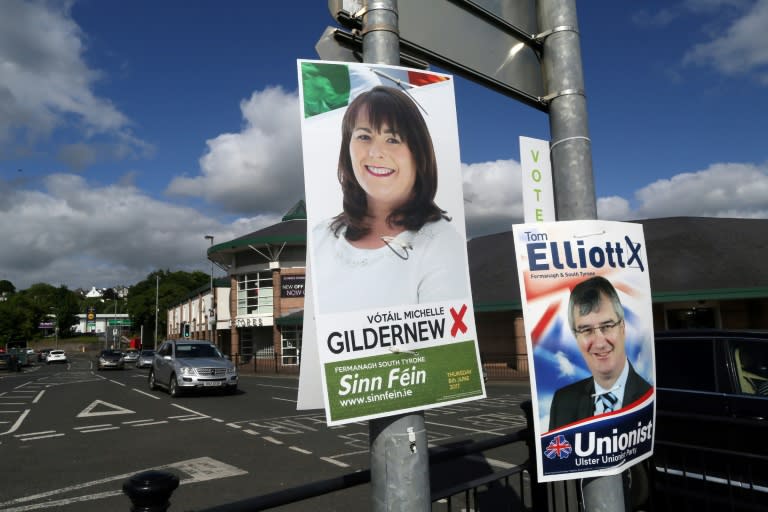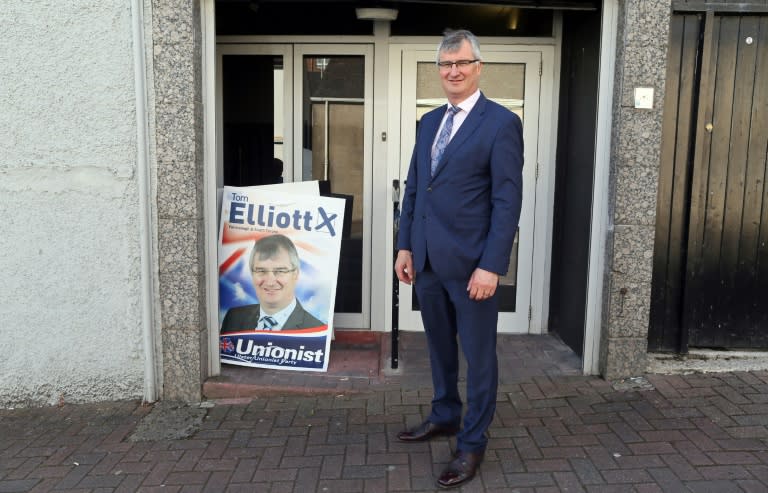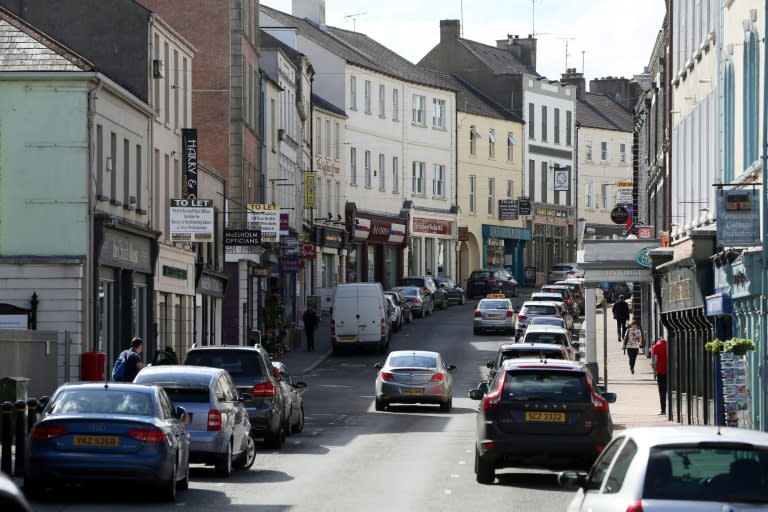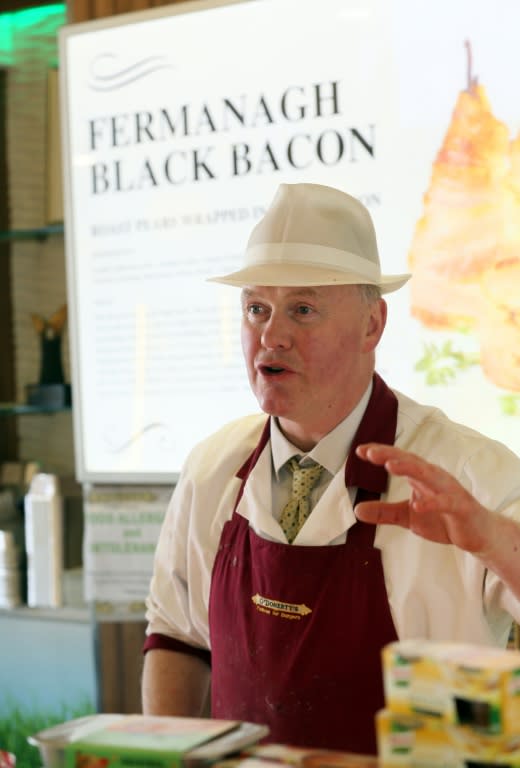Brexit looms large in tight vote on N. Ireland border
Taking a break from the UK election campaign in the village of Kinawley in Northern Ireland, Sinn Fein candidate Michelle Gildernew gazes across the patchwork of fields criss-crossing the border with the Republic of Ireland. Gildernew grew up along the border when the conflict in Northern Ireland was in full swing and the frontier was peppered with military checkpoints, dividing communities that had once been strongly linked. She worries that Britain's exit from the EU will bring back border controls, and she hopes to win the local seat from its Brexit-supporting MP next week on the back of Sinn Fein's pro-European policies. "Since the military installations were removed there is a whole generation who have never known what it's like to live beside the border," the 47-year-old told AFP ahead of next Thursday's vote. "The border has been practically invisible and nobody wants to see it reinstated," said Gildernew, who is competing in the largely rural constituency of Fermanagh and South Tyrone, which made headlines in 1981 with the election of Irish Republican hunger striker Bobby Sands. Tom Elliott of the Ulster Unionist Party upset the odds at the last general election in 2015 to beat out Gildernew by fewer than 600 votes. They are the two front-runners once again in what has become one of Britain's most hotly contested seats. Gildernew said the "Brexit effect" was gaining her votes from all sectors of the community, even among those who backed Elliott the last time around. "People in places like this understand the danger that Brexit poses, and they are angry that although 56 percent of people in Northern Ireland voted to stay part of the European Union, Tom Elliott went to London and voted to take us out of it," she said. Sinn Fein wants Northern Ireland to be granted a special status in the Brexit negotiations to ensure an open border, and has called for a referendum on reunification in the next five years. - 'Bread and butter issues' - The polls and pundits predict that Gildernew will regain the seat, but Elliott insists the election will be more "about bread and butter issues like health and education" than Brexit. Elliott, a cattle farmer, is unapologetic about backing Britain's withdrawal from the European Union, saying it will bring "opportunities" for the region. He has said the EU's annual farming subsidy of 260 million pounds (298 million euros, $335 million) for Northern Ireland will probably be replaced by funds from London. He also argues that Brexit will not necessarily mean a return of border posts. "I believe a hard border will be avoided, absolutely. I do think you will see an increase in spot checks but there will be a huge reliance on electronic surveillance," he said. - 'Won't be good' - In the bustling market town of Enniskillen there is a real sense that residents have moved on from the dark days of the conflict that claimed more than 3,000 lives, including 11 civilian victims of an Irish Republican Army bomb here in 1987. Alan Latimer and his partner Laura Oestreich, who run the Happiness Trap, a vegetarian cafe on the main street, will not be voting because they live across the border in Ireland. But Latimer hopes their half-hour commute will not get longer post-Brexit. He said they chose to open their cafe in Enniskillen in 2015 because it was "our nearest big town –- we didn't think about the border at all". Brexit, however, is already having an effect on their business. "We import most of our organic foods from the EU, particularly the Netherlands, and sterling weakness after the referendum added almost 10 percent to our costs, so we had to hike prices," he said. "Obviously, currencies ebb and flow, but more red tape post-Brexit or additional tariffs will certainly add to our cost base, which is a concern for any business." In the middle of town, Pat O'Doherty, a butcher who exports a wide range of traditional bacon products to Ireland, is already concerned about potential regulatory changes when Britain leaves the EU. Asked if a hard border can be avoided, O'Doherty shakes his head. "I can't see them introducing any other kind of border because of the UK government's stance on immigration -- that's the reality of the situation we're facing and it won't be good for us".





